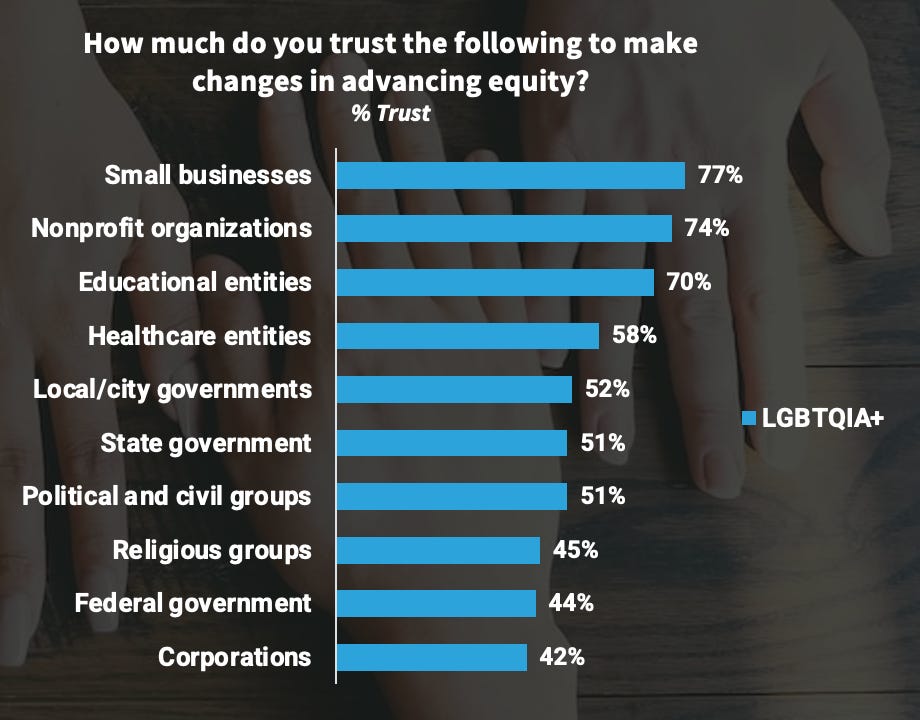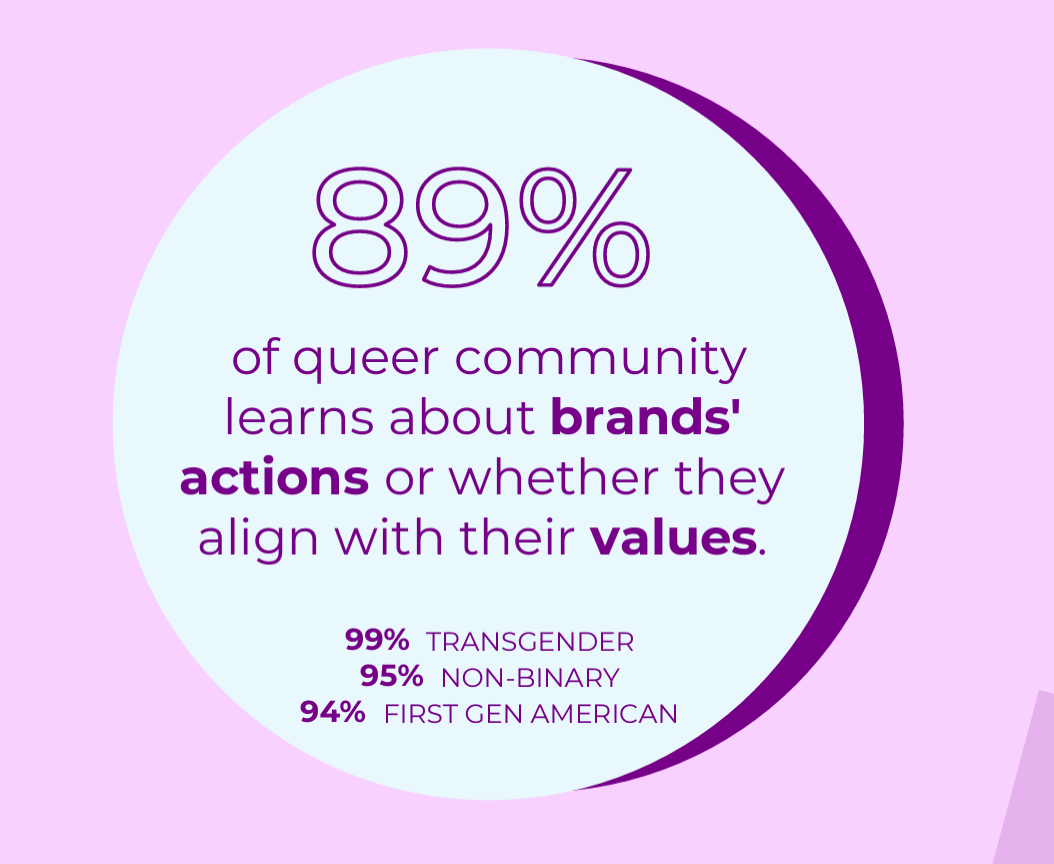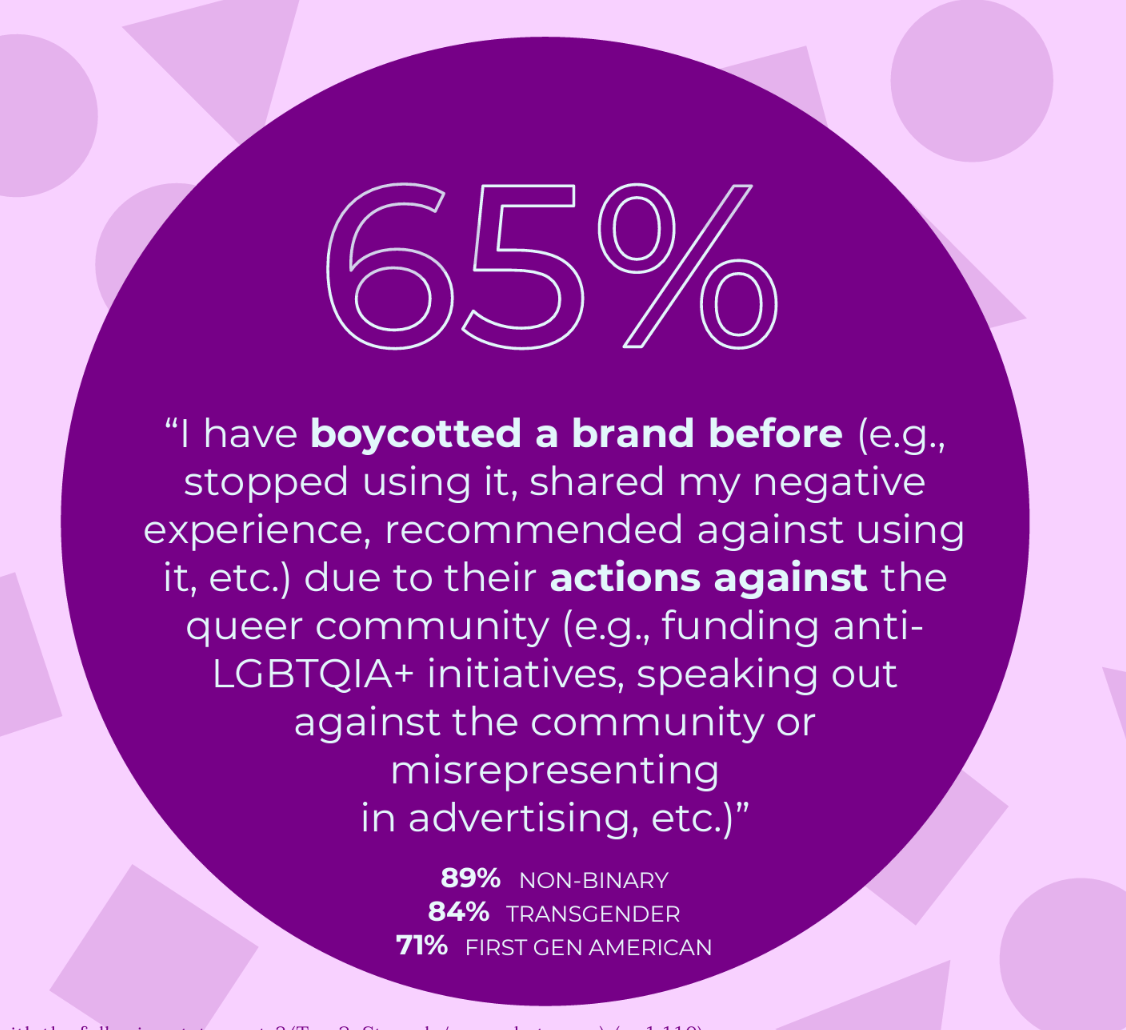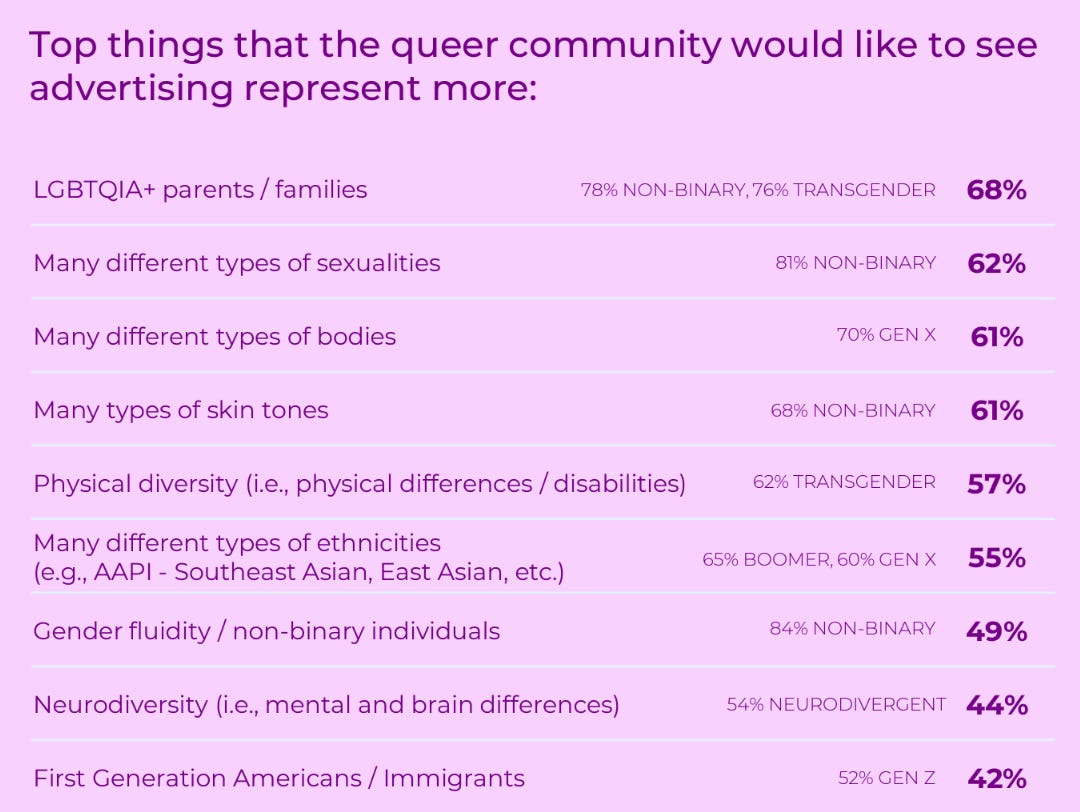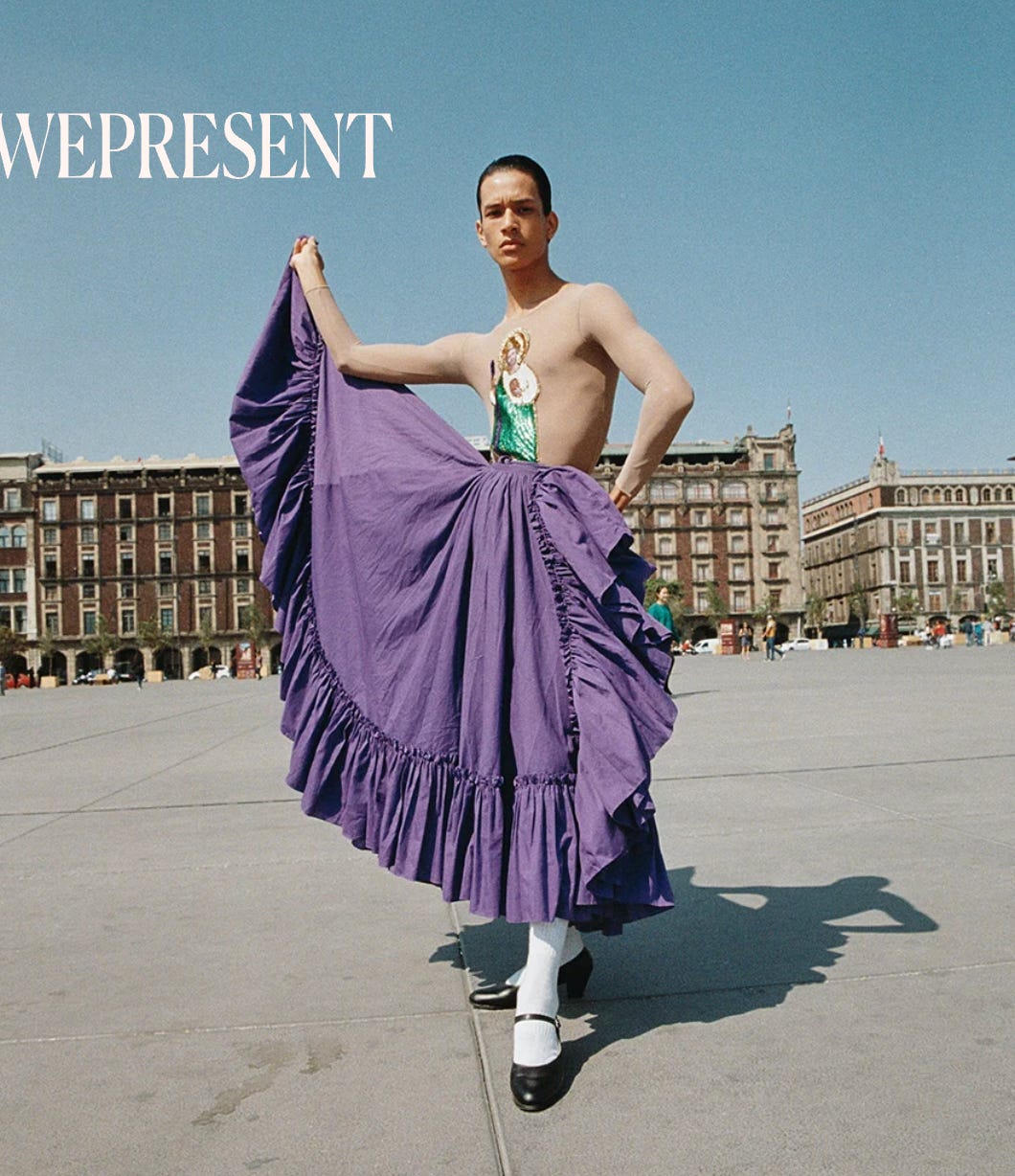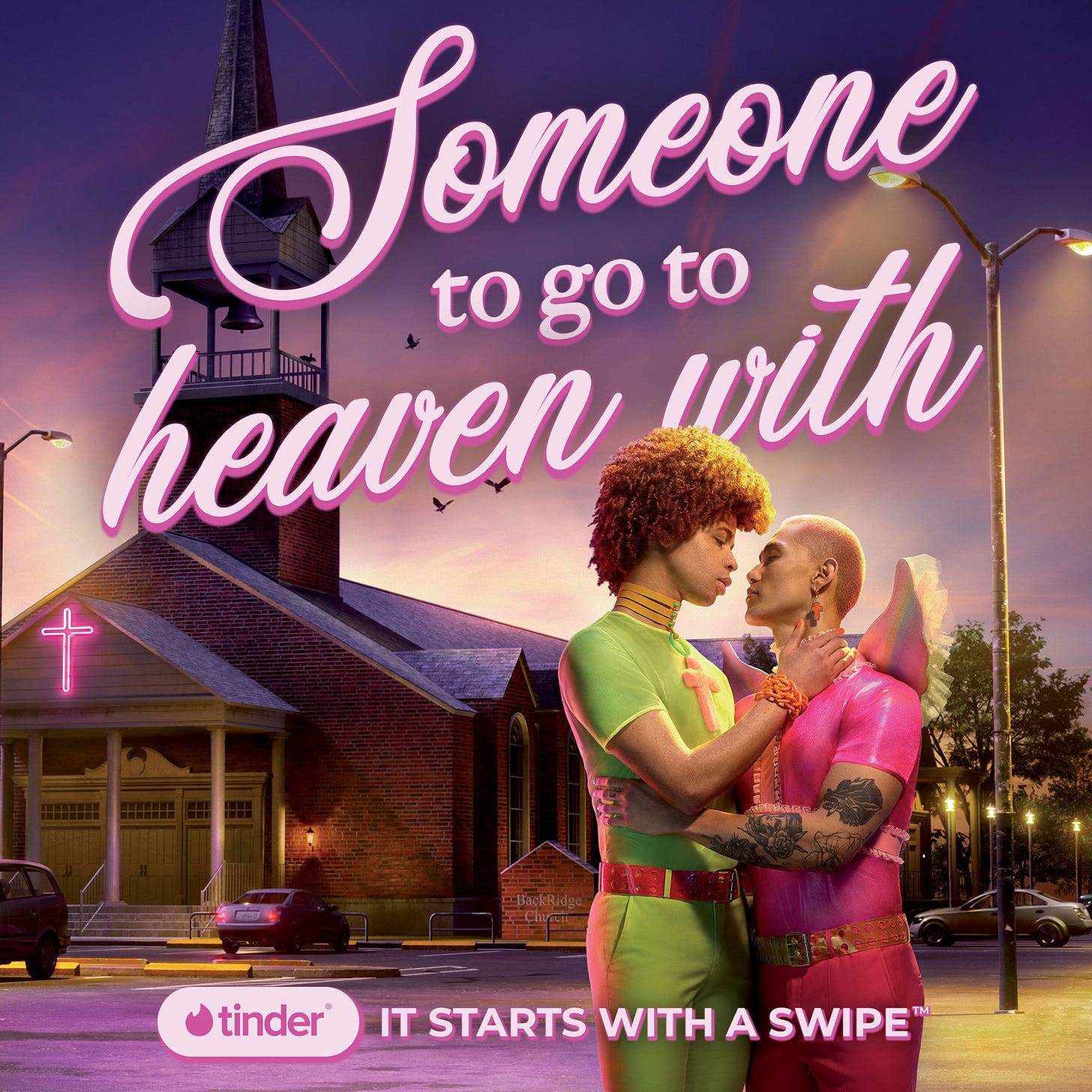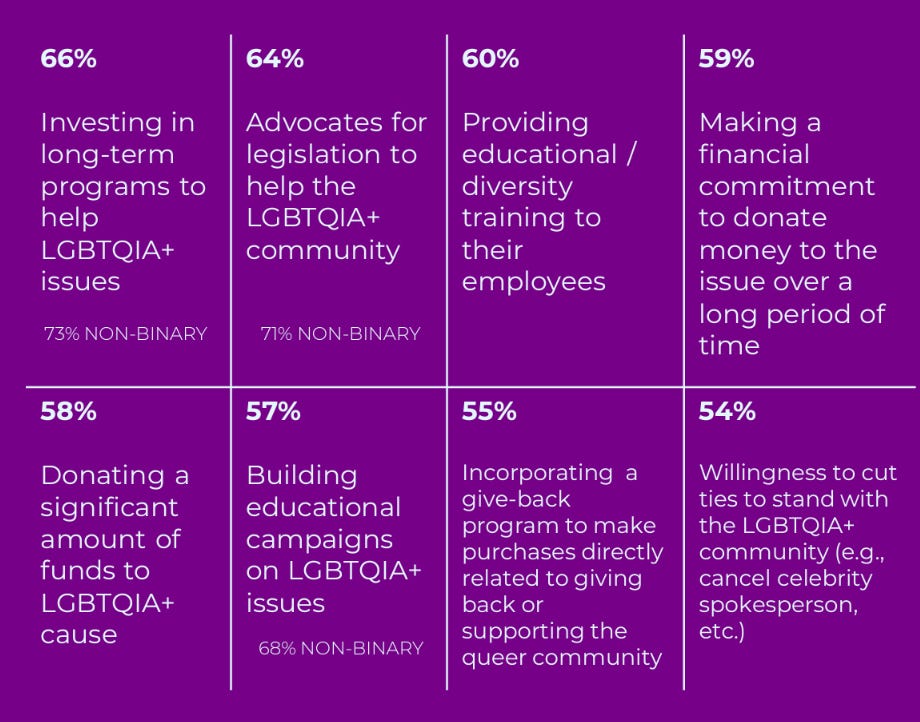Don’t Pause The Rainbow
An extensive look at LGBTQIA+ Americans and brands; surfacing foundational expectations for brands to represent, support, and invest in the LGBTQIA+ community.
The Next Big Think! will send you one number, one insight, and three links weekly to keep you ahead of societal shifts.
#CorporateTrustLoss
LGBTQIA+ Americans rank ‘corporations’ as dead last in the ability to make changes in advancing equity at 42% v. Small Businesses, 77%.
LGBTQIA+ Americans rank corporations as dead last in entities that would make changes in advancing equity, even the federal government gets higher ratings.
Source: The Harris Poll
In continuation of our “Inclusive Insights: LGBTQIA+” series, led by Tim Osiecki, Morgan Rentko, and Danielle Sumerlin- we highlight the role of brands.

💡One Insight
Don’t Pause The Rainbow- LGBTQIA+ Americans Are Looking For Brand Support Now
What:
As covered by Fast Company, Brands, you’re doing Pride allyship wrong, our recent data shows now is not the time to put a pause on supporting the LGBTQIA+ community.
A trend we see in this data, as well as all historically marginalized groups is a desire to be more seen, included, and represented within marketing efforts. Cultural appreciation months are great, but the data shows we cannot think about supporting these communities as a content calendar exercise. That type of thinking is simply too superficial in the context and the expectations of today's times.
Creative Inclusive Director, Jamie June Hill, wrote a concise perspective, “if you are going to raise our flag, you best be ready to fight for it too.” In an era of culture wars, companies in most cases simply can not remain neutral. We found in recent Harris Poll data that one thing Americans can come to consensus on it’s a losers’ game trying to appease all sides; 75% of Americans say that corporations won't achieve societal change as they try to appease both sides (Dem: 76%, Rep: 75%, Ind: 73%).
What the data tells us:
"Inclusive Insights: LGBTQIA+ and Brand," surveyed over 1,100 LGBTQIA+ adults in the United States, including viable audiences of BIPOC LGBTQIA+ and non-binary and transgender respondents.
LGBTQIA+ community are active brand investigators
LGBTQIA+ community will boycott you
LGBTQIA+ people are keeping track of brands that backtrack and see through performative brands
68% say “I'm taking notes of brands that say they stand for the LGBTQIA+ community, but then back down as soon as the opposition mounts” — especially those that identify as transgender (90%).
79% say “ “I easily notice when a brand is performative when it comes to their engagement with the LGBTQIA+ community” — especially those that identify as non-binary (95%) and transgender (88%).
A lever they want to see optimized is advertising
Like many other historically marginalized groups in America, LGBTQIA+ people want to see a more conscious representation of the amount of diversity within their community.
82% of LGBTQIA+ say “Brands need to be more conscious about representing the many identities of the LGBTQIA+ community” — especially those that identify as non-binary (92%).
The Washington Post covers the evolution of the last 50 years in LGBTQIA+ marketing from the cycles of acceptance to perceived controversy
What does representation look like? Start with LGBTQIA+ parents / families and move towards lots of variety in representation.
Examples of some work we’ve seen lately:
WeTransfer has a great series called WePresent
Tinder specifically worked With LGBTQIA+ talent/producers to make their latest campaign, they’ve created policy campaigns, and LGBTQIA+ members are now the fastest growing group on Tinder.
What to think about?
LGBTQIA+ people are looking for businesses to be forces of good in society, and not just for the month of June. Many leaders we talk to, are worried they will come across as performative and thus they don’t speak up. In an attempt to lay some groundwork, we asked the community what is an authentic gesture (see below).
For the LGBTQIA+ community authentic allyship boils down to three simple principles; time, investment, and advocacy.
To build enduring and reciprocal relationships with LGBTQIA+ consumers, companies can think through the following;
Mapping out core long-term commitments/investments. Answering; how are these commitments/investments linked to our core expertise?
Identify policies to advocate for. Answering; what long-term actions can we take? What policies could we help bring attention to OR take a stance against? (note we will address advocacy in July)
Provide internal workplace education. Answering; what are we doing for employees to create more inclusive cultures (note: we addressed this last week).
Optimize your advertising: Get more diverse in how you represent LGBTQIA+ people, families, and communities. Also hire more LGBTQIA+ artists, photographers, and production companies to provide that lens as well.
Put tracking in place. Answer; How are we tracking and monitoring our focus on this value/issue (e.g., how are we doing with LGBTQIA+ rights)?
In July, we will continue our coverage of the LGBTQIA+ community with advocacy/policy issues and housing.
Have a great 4th of July. We are off to #EssenceFest, and the Global Black Economic Forum to present our recent work on the state of health, wealth, and work inequities in the U.S.
3 Links
Chocolate brand Tony's Chocolonely adds legal locks to protect its mission forever (Trendwatching)
This AI-for-fashion lets you to launch and run a clothing line with just a prompt (Fast Company)
An interesting listen: Why This Economist Wants To Give Every Poor Child $50,000 (NYT: Ezra Klein podcast)
Curiosity is contagious; if you like this newsletter, please share it!!
Penned by Libby Rodney and Abbey Lunney, founders of the Thought Leadership Group at The Harris Poll. To learn more about the Thought Leadership Practice, just contact one of us or find out more here.




